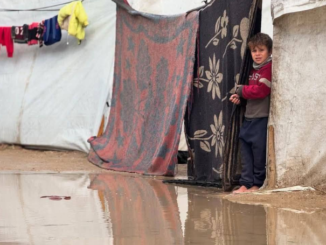
By Ramona Wadi
UN Special Rapporteur Michael Lynk has suggested that the international community should consider cutting ties with Israel if it goes ahead with further colonial settlement expansion and annexation, according to a report by Al Jazeera.
Non-binding requests or suggestions from the UN, however, are unlikely to go beyond rhetoric, given the international community’s political investment in Israel and complicity in the colonial occupation itself.
Had Israel been a country marked for foreign intervention, the international community would have no qualms about implementing Lynk’s suggestions. However, the persistent, non-binding nature of UN recommendations will only serve to create further ambiguous discourse when it comes to Israel and human rights violations.
“The international community has to look at the available menu of countermeasures that is commonly used to a wide range of countries involving gross human rights violations and has to decide what are the appropriate ones to consider to use with respect to Israel,” Lynk told Al Jazeera. Yet the UN is failing repeatedly to consider Israeli colonialism as a “gross human rights violation”.
Indeed, the international organization has served as a platform for Israeli ventures, especially since the state has started to market itself to African countries with regard to sustainable development and agriculture practices.
The UN has perpetually excused Israel’s massacres and adopted the colonial entity’s purported security and “self-defense” narrative. In fact, like other entities, the UN has singled out settlement expansion as the only violation worth speaking about.
This begs the question, is the UN seeking out safe measures when it decides to push forward, at least in the discourse, the need for punitive measures when it comes to Israel?
Settlement expansion in UN narratives is completely dissociated from the 1948 Nakba and the ongoing colonization of Palestinian land. It is a subject which enjoys international consensus and which focuses strictly on buildings rather than the ideology and political context behind their construction.
When the international community speaks about settlement expansion, it does not draw attention to the resultant Palestinian dispossession, nor does it bring into question the fate of Palestinians and how the right of return for the Palestinian people must be revised to cater for a perpetual, intentional, forced displacement.
Lynk’s argument that Israel’s military occupation will become further entrenched if there is no international economic pressure is not completely accurate. Having positioned and marketed itself to developing countries, Israel has sought to expand its economic possibilities globally.
t has prepared itself for possibilities which might see it fall out of favor by extending its reach to countries rich in natural resources. Meanwhile, diplomatically and politically, Israel has gained enough ground to assure itself of minimum repercussions if a hypothetical fallout does occur, which is, by the way, unlikely in any meaningful sense.
Lynk has also suggested the possibility of suspending Israel’s UN membership. This move would be instrumental in implementing the first divide between the international community and the self-styled “Jewish state”.
However, Israel is also the UN’s lasting colonial project. As a facilitator of colonialism, it is not in a position to set the rules that penalize Israel. Of course, the Israelis know this. They also know that the UN is much more likely to take measures which restrict Palestinians’ political demands in order to continue its two-state diplomacy. The global level of conspiracy, once again, provides Israel with its greatest level of impunity.
– Ramona Wadi is a staff writer for Middle East Monitor, where this article was originally published. She contributed this article to the Palestine Chronicle.







